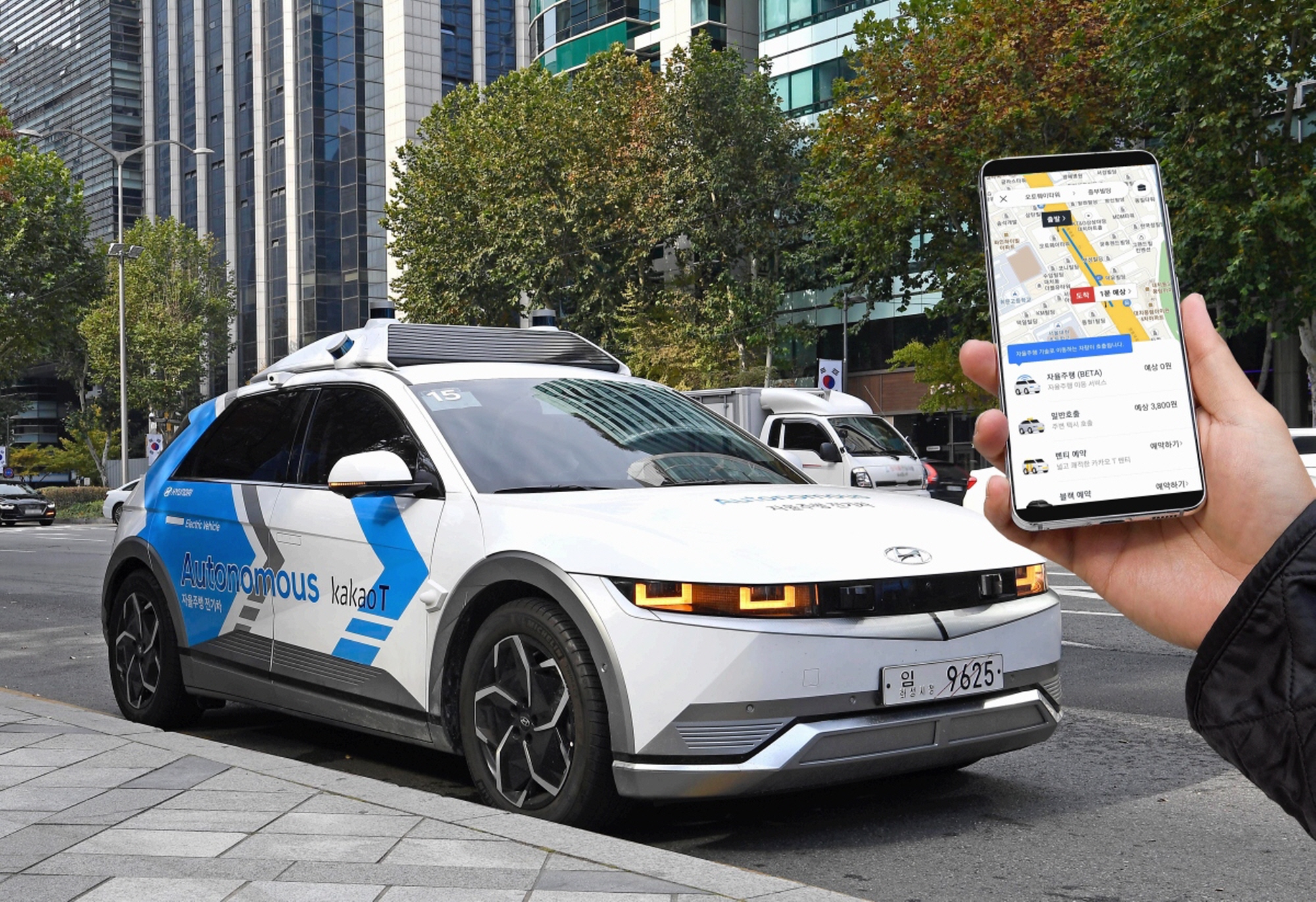
Kakao Mobility is launching a pilot service for autonomous driving in collaboration with Hyundai in the Gangnam area of Seoul. Both companies have been working together to develop autonomous driving technologies.
The service being offered in Gangnam uses Kakao Mobility’s ‘Kakao T’ platform, allowing passengers to summon the Ioniq 5 ‘RoboRide’ developed by Hyundai. The RoboRide vehicle is optimized for urban driving and can detect and manage obstacles such as traffic signals, pedestrians, and motorbikes. Kakao Mobility will handle all service operations, from dispatching and routing to service policy formulation and customer experience management, aiming to build a platform optimized for urban autonomous passenger transport.
Customers can easily access the vehicle call service through the existing Kakao T app, without needing to install a separate app or go through a registration process. During the pilot period, the service will only be available to employees and affiliates of both companies, with operating hours limited to weekdays from 10 AM to 4 PM to accommodate commuter schedules.
The service will utilize two Ioniq 5 vehicles equipped with level 4 autonomous driving technology, operating on a demand-based model that allows users to summon ‘RoboRide’ vehicles freely along fixed routes, including Yeongdong-daero with 14 lanes and Teheran-ro with 10 lanes.
Gangnam is recognized for having the longest network of roads available for autonomous driving pilot operations, being one of the busiest areas in the country with high traffic congestion, making it a challenging environment for the implementation of autonomous services. Therefore, real-time traffic analysis, optimal route calculation, and AI dispatching from Kakao Mobility’s platform are expected to play a crucial role.
Through the pilot service, both companies aim to utilize the expertise and technology gained to enhance data analysis and improve technology for future commercial services available to the general public, collaborating to introduce autonomous driving in various environments and with different vehicles.
Kakao Mobility plans to refine the foundational technologies necessary for commercializing autonomous services, leveraging its unique platform capabilities built through the Kakao T app. The company has been making efforts to solidify the domestic autonomous driving ecosystem by collaborating with various large enterprises, startups, and research institutions.
Jang Woong-jun, Executive Vice President of Hyundai’s Autonomous Driving Division, expressed excitement about launching the first autonomous driving pilot service in collaboration with Kakao Mobility, stating, “We will continue to strive to ensure that customers can experience safer and more convenient autonomous driving technology across a variety of platforms.”
Jang Sung-wook, Vice President of Kakao Mobility’s Future Mobility Research Institute, stated, “Gangnam is regarded as one of the most complex urban areas globally, and through collaboration with a leading domestic automaker like Hyundai, we can accelerate the development of urban autonomous driving technologies. We will continue to actively collaborate with startups, large enterprises, and research institutions to ensure that Kakao Mobility’s platform technology contributes to the commercialization of individual autonomous driving technologies.”
Meanwhile, following the launch of the autonomous passenger service in Sejong City, Pangyo, and Gangnam, Kakao Mobility plans to partner with Autonomous A2G and RideFlux to introduce integrated autonomous passenger and logistics services in Daegu and Jeju in the future.
Journalist: Lee Sang-jin daedusj@autodiary.kr

